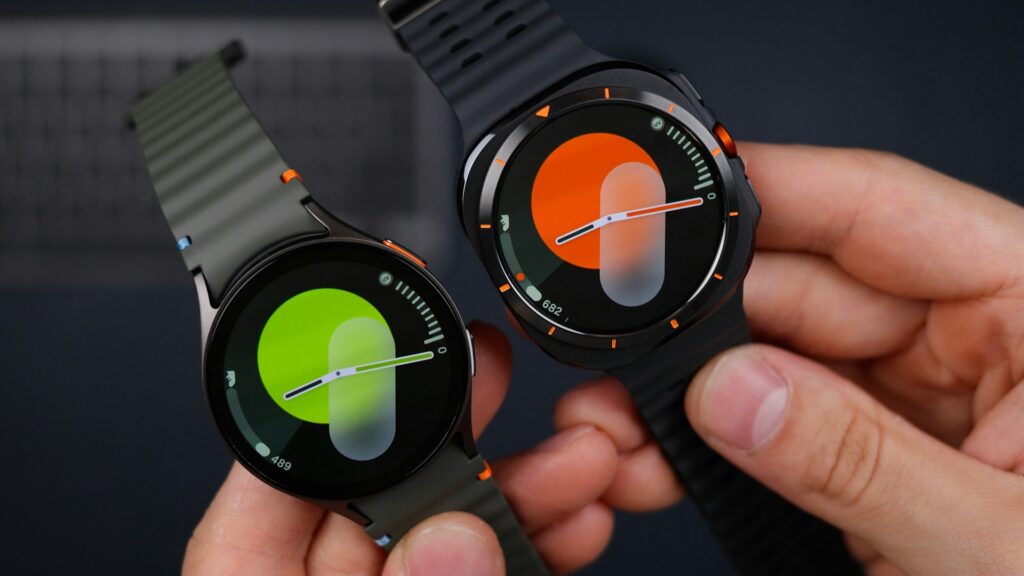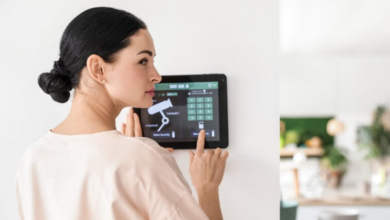The World at Your Fingertips: Mobile Development Changing Lives

The Mobile Revolution – Our Constant Companion
It’s impossible to deny that mobile technology has transformed our lives, with everyone from children to grandparents glued to their devices. From browsing the latest news in New York to sending a recipe across continents, mobile apps have become an essential part of modern living, shaping everything from social interactions to business operations. And here in Charlotte, North Carolina, where the bustling tech scene blends innovation with Southern charm, Above Bits is proud to be at the heart of this transformation. With our experienced mobile development team, we bring ideas to life, turning vision into cost-effective and attractive mobile apps for our clients across North Carolina and beyond.
In this article, let’s dive deep into the world of mobile development—exploring the impact on industries, the tech behind it, and, of course, the intriguing stories that come with creating apps for modern mobile devices. We’ll talk about the triumphs and the tech challenges that even industry giants face because, let’s face it, the tech world isn’t all sunshine and seamless upgrades.
How Mobile Development Has Changed Our Everyday Life
Mobile apps have redefined accessibility; today, many rely on them for everything from GPS navigation to IoT-powered smart homes. Whether we’re tracking a package in real-time or navigating traffic, mobile apps provide a level of convenience that would have been unthinkable just a decade ago. Mobile development allows for constant innovation, with cutting-edge features like LidAR (Light Detection and Ranging) for immersive experiences in real estate and gaming industries. In Charlotte, North Carolina, we’ve seen how such features have helped local businesses thrive, offering new and engaging ways to interact with customers.
Yet, despite these advances, only some apps are created equal, and mobile technology has challenges. Developing apps for various devices—smartwatches, tablets, and smartphones, each with different screen sizes and hardware capabilities—demands adaptability and technical finesse. Here at Above Bits, we’ve seen firsthand that creating an attractive and efficient mobile experience requires more than just code; it’s an art and science.

A Look Back: Mobile Development from the Early Days
Before diving into what’s possible today, it’s worth appreciating how far mobile technology has come. Basic mobile apps were limited by clunky hardware and simple code in the early 2000s. The launch of Apple’s App Store in 2008 changed the game, allowing developers to create more sophisticated applications. At Above Bits, we remember the days when the biggest technical achievement for a mobile app was getting a scrolling menu the size of a thumbprint to run smoothly on a screen.
Fast forward to today, and we’re developing apps with advanced AI, real-time data processing, and powerful image recognition tools. This evolution is a testament to both hardware advancements and the creativity of developers. But here’s the thing: as apps become more advanced, so do the challenges. Today, users expect seamless experiences, no matter their device, network connection, or location. And they won’t settle for apps that crash or drain their battery. A single bug or lag in performance can send a user straight to the app store for a competitor’s app.
Big Players, Big Problems: The Technical Hurdles of Mobile Development
Even the world’s biggest tech companies, with vast development resources, struggle with mobile technology challenges. Take Facebook, for instance. The platform has over a billion daily users on mobile devices, yet it has been widely criticized for draining battery life. Facebook’s engineers eventually discovered that the app continued to run in the background even after users closed it, leading to a significant battery drain. This fix, which seemed straightforward, required extensive troubleshooting and tweaking to keep users happy.
Similarly, in the gaming world, popular mobile games like “Pokémon GO” are known for consuming data and battery power. The game’s developers at Niantic had to overcome complex technical issues around GPS navigation and data streaming to create a smooth experience for millions of users. In North Carolina, we’ve had our share of challenges working with GPS navigation and other tech-heavy applications, where real-time data accuracy and minimal lag are paramount.
These examples highlight a truth we’ve seen at Above Bits—creating great mobile apps often involves trial and error and a strong commitment to continuous improvement. Designing for mobile doesn’t allow for shortcuts, and our experienced team in Charlotte knows this better than most. We take pride in crafting affordable, efficient mobile solutions for clients who want reliability, functionality, and a touch of Southern flair.
Beyond Smartphones: How IoT and Wearables Expand Mobile Development Horizons
Mobile apps are no longer confined to smartphones. Thanks to the Internet of Things (IoT), mobile development powers everything from fitness trackers and smartwatches to connected home devices. Just look at the Fitbit or Apple Watch—these devices do more than count steps. They monitor heart rate, track sleep patterns, and provide personalized health insights, turning mobile development into an essential component of personal wellness. This trend toward mobile-integrated IoT shows no signs of slowing down, and it’s estimated that by 2025, the IoT industry will reach a staggering $1.6 trillion.
In Charlotte, we’ve worked on projects beyond traditional app development, leveraging IoT and mobile integration to create comprehensive digital ecosystems. For instance, we developed a mobile solution for a community-based application with security features for audio streaming and emergency signals. This challenging yet rewarding project brought innovation to everyday safety.
However, IoT development isn’t without its obstacles. Unlike conventional app development, IoT applications have to manage multiple points of failure, from connectivity issues to battery constraints on small, portable devices. Additionally, security is paramount; any vulnerability can lead to data breaches, which, for a business, can mean lost trust and potential legal repercussions. For this reason, Above Bits emphasizes secure, scalable development practices, making sure our clients get reliable solutions without compromising security.
Tech’s Hidden Costs: The Downsides of “Always-Connected” Mobile Development
With mobile technology ingrained in our daily routines, there’s no doubt it brings benefits—but it also has downsides. Studies have shown that excessive smartphone use can lead to anxiety, disrupted sleep patterns, and even addiction. Apps are designed to be engaging and keep us coming back for more, which is fantastic from a developer’s point of view, but as users, it’s worth considering the impact. In North Carolina, tech companies, including Above Bits, are increasingly aware of these challenges. We focus on ethical app development practices, ensuring user experience is front and center without encouraging overuse.
Another downside? Data consumption. Mobile apps often require constant data to function effectively, which can quickly eat into users’ data plans. As more companies roll out 5G, this problem may diminish, but heavy data usage remains a sore point for users. Netflix, for instance, faced user backlash for its high data consumption on mobile, prompting the company to introduce an option for users to lower the quality to save on data.
At Above Bits, we often face the issue of balancing features with resource use, as our clients in Charlotte and beyond expect apps that are not only feature-rich but also efficient. We recognize that mobile apps must be affordable, reliable, and considerate of users’ resources. Designing for lower data usage isn’t always easy, but it’s a challenge we enjoy tackling.
Pushing Boundaries – The Future of Mobile Development
Beyond Reality: Augmented Reality (AR) and Virtual Reality (VR) in Mobile Apps
As mobile technology pushes the boundaries of what’s possible, AR and VR have emerged as some of the most exciting developments. Think of apps like IKEA Place, which lets you visualize furniture in your room using your smartphone camera, or Pokémon GO, which overlays the digital world on real landscapes. Both are great examples of how AR can add value to a mobile app by blending reality with virtual elements.
The potential of AR and VR is huge, but they also come with unique technical challenges. Developing apps with AR or VR features requires a deep understanding of software and hardware limitations. Devices need high processing power, yet only some smartphones can handle these demands without lagging or crashing. Additionally, there’s the concern of user accessibility—AR and VR capabilities are often unavailable on lower-end devices, which means that developers risk alienating users who don’t have the latest hardware.
Despite these challenges, we’re passionate about exploring AR and VR at Above Bits. For clients who want to offer their users an immersive experience, our team works to find efficient and accessible solutions. In Charlotte, where retail and real estate are booming, AR apps offer new ways for businesses to connect with customers, allowing them to “try before they buy” or view potential home upgrades virtually.
Mobile Apps in Smart Cities: Building Connected Communities
As cities worldwide become “smarter,” mobile apps are key in improving urban living. For instance, in Singapore, mobile apps help residents find nearby public transport, access government services, and monitor air quality in real-time. Barcelona has developed an extensive network of IoT sensors that gather data to help manage resources, and residents can use mobile apps to find the closest available parking spot or receive updates on public services. These advancements show how mobile development can create more connected and efficient urban areas.
Here in North Carolina, Above Bits is enthusiastic about participating in these developments. Although we’re a smaller city than the global metropolises, Charlotte is well-positioned to become a regional tech hub. Our experienced mobile development team has already worked on projects incorporating GPS navigation, real-time data, and IoT devices, providing our clients with innovative solutions that cater to the needs of modern city life.
Mobile Tech Meets Healthcare: The Impact on Wellness and Medical Access
Mobile apps are also transforming healthcare, making it easier for people to track their health, consult doctors, and manage chronic conditions. The COVID-19 pandemic accelerated the adoption of telemedicine, with companies like Teladoc Health and Doctor on Demand experiencing massive growth. Now, apps allow patients to book appointments, get prescriptions, and monitor vital signs remotely.
But while health apps bring convenience, they also face regulatory and privacy hurdles. In the United States, mobile health apps must comply with HIPAA (Health Insurance Portability and Accountability Act) to ensure the security of personal information. The stakes are high; a single data breach can lead to serious repercussions for both the developer and the user. At Above Bits, we prioritize security in all our mobile projects. Regarding healthcare apps, we go the extra mile to ensure compliance with legal standards, offering affordable solutions without sacrificing data security.
Mobile healthcare apps have a bright future but require ongoing investment in privacy protections, user education, and regulatory compliance. Mobile developers must stay vigilant to keep pace with technological and legal changes.
The Downsides: Privacy Concerns and Data Collection in Mobile Apps
While mobile apps open new doors, there’s growing concern over how much data they collect from users. In exchange for no upfront cost, many free apps collect information such as location data, browsing habits, and even personal preferences to sell to advertisers. This model has led to a rise in privacy-focused alternatives as more users become aware of the trade-offs involved in free software.
Big companies like Apple and Google have responded by creating policies to protect user privacy. Apple’s App Tracking Transparency feature, for instance, requires apps to ask permission before tracking user activity across apps and websites, giving users more control over their data. While this is a win for privacy advocates, it complicates things for developers who rely on ad revenue, as they now need to rethink their monetization strategies.
At Above Bits, we see the rising demand for privacy-first applications as an exciting opportunity to innovate. Our mobile development team in Charlotte is experienced in building cost-effective mobile solutions that minimize data collection and provide users with security and transparency. This approach to development can be a significant selling point for clients looking to build a trusted brand.
Trends Shaping the Future of Mobile Development
So, what does the future hold for mobile apps? Advancements in 5G, AI, and machine learning are set to change the game once again. As 5G networks continue to roll out globally, mobile apps can offer smoother, faster experiences, making features like video streaming and live gaming far more accessible. This could bring about another surge in demand for high-performance apps that can utilize faster data speeds, which we’re keeping a close eye on at Above Bits.
AI and machine learning are also poised to revolutionize mobile development, enabling more personalized experiences. For example, recommendation engines powered by AI, such as those used by Netflix and Amazon, can offer users tailored suggestions. Additionally, AI-driven chatbots are becoming a staple in customer service, providing users with immediate responses and automating tasks that previously required human interaction.
However, these advancements require significant processing power and complex code, which can drive up development costs. This is where an experienced mobile development team, like ours here in North Carolina, becomes essential. We work to create solutions that balance innovation with affordability, ensuring that our clients can stay competitive in an evolving market without overspending.
Parting Thoughts
The world of mobile app development is vast, dynamic, and full of potential. From shaping smart cities to driving healthcare advancements, mobile apps are doing far more than just entertaining us—they’re making life easier, safer, and more connected. But achieving success in mobile development requires more than just a good idea; it requires technical expertise, creativity, and a deep understanding of user needs and market trends.
Above Bits is proud to offer affordable, high-quality mobile development services to Charlotte and North Carolina businesses. With years of experience building attractive, efficient mobile apps, we’re ready to help your business tap into the mobile revolution. Whether you’re looking to create an app for GPS navigation, smart home integration, or IoT functionality, our team is here to bring your vision to life.
Visit us and discover how our experienced mobile app developers can help you build a cost-effective solution that meets the demands of modern mobile users. Let’s make your app idea a reality and leave a mark in the ever-evolving world of mobile technology.



